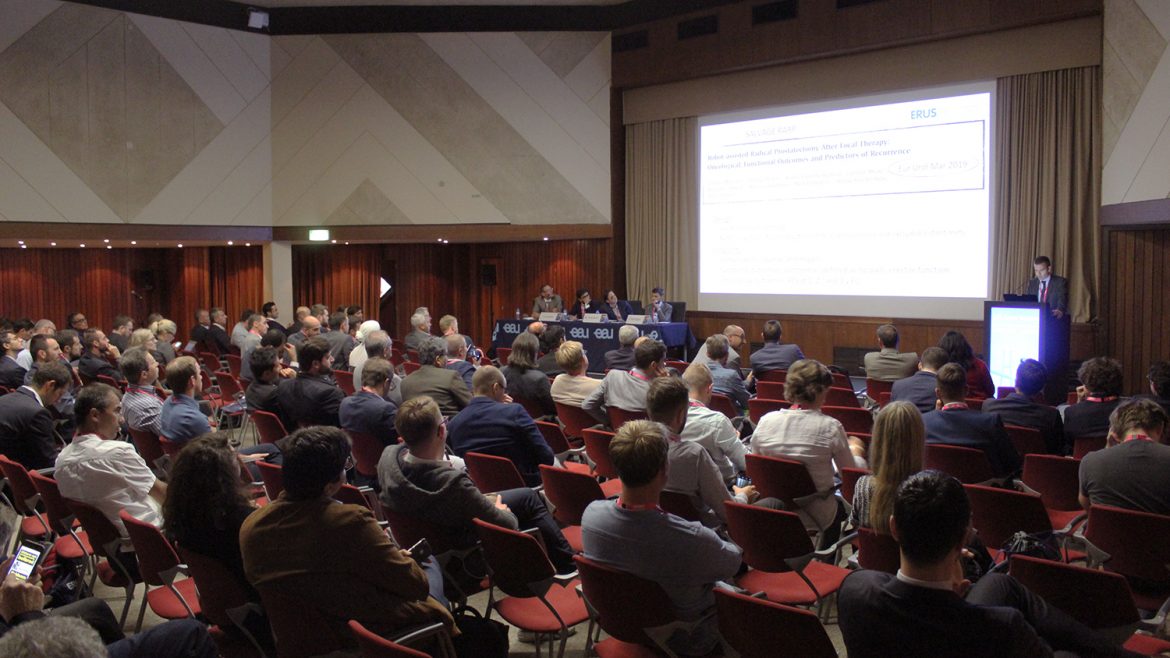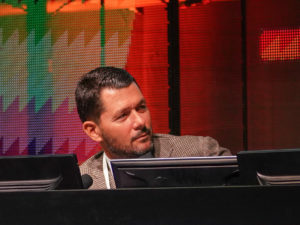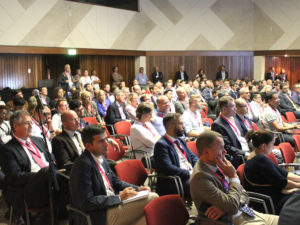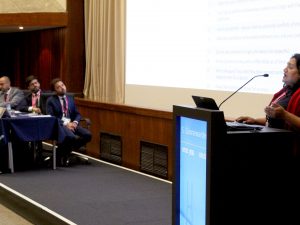As is traditional (or should one say, best practice), the 16th edition of the ERUS meeting started on Wednesday with a special young urologist-oriented programme, the afternoon before the regular scientific programme is set to commence.
The Junior ERUS-YAU meeting is co-organised by ERUS and the EAU’s Young Urologists Office (YUO) and the Young Academic Urologists (YAU) and tackles topics that are of particular note for those at the beginning of their career in robotic surgery. Subjects include robotic fellowships, the variety of (tele-)mentoring programmes available and tips and tricks for those who are assisting more senior robotic surgeons.
The 16th Meeting of the EAU Robotic Urology Section, or ERUS19 is taking place in Lisbon on 11-13 September, 2019. It will draw over 600 robotic surgeons from across the world for case discussions, hands-on training, the latest technology and, perhaps most importantly, the popular live surgery sessions.
Training and practice
Dr. Christian Wagner gave an informed update on the state of robotic fellowships, a topic that is particularly relevant for the younger audience. ERUS currently offers the European Robotic Curriculum (CC-ERUS) together with the European Urological Scholarship Programme (EUSP), having trained 131 fellows since its inception. The current programme is designed for six months of training at a certified host centre (up from 12 weeks).
Wagner encouraged all interested parties to explore the programme and sign up. “There are no practical limits to the candidates, other than having 3D eyesight. The only condition is that the fellowship should not be an ‘infertile investment’, that is to say that the fellow should actually have a realistic perspective of using a robot in his or her own centre.”
Questions from the audience came about the potential for accrediting robotic surgeons. Wagner explained the the fellowship currently is only a proof of completion. After some investigation, it became clear that ERUS could not set up a formal “driver’s license” programme. This remains up to individual/national medical boards.
As the programme gave way to the second session, the “practical interactive” workshop, Dr. Achilles Ploumidis and Prof. Agostino Mattei each gave very practical operating room advice for younger urologists. Dr. Ploumidis commented on the need for a clear, military-style oral communication style to compensate for the robotic surgeon’s relative distance from the patient. This avoids irritation and keeps the surgeon abreast of the patient-side logistics. Other recent developments with a significant impact on the assistant’s role are the introduction and quick indispensability of the fourth robotic arm, and the robotic bulldog clip.
Prof. Mattei gave practical advice for surgeons who find themselves in the position of assisting with robotic lower urinary tract procedures, particularly port placement and the challenges of different body types and robotic platforms. He also recommended “active assistance”, taking a strong interest in the procedure beyond immediate responsibilities and preventing the surgeon from possibly making errors.
The Junior ERUS-YAU meeting also featured unusual semi-live, pre-recorded cases and an overview of the best literature of 2019 so far. Prizes were awarded for the best video and best poster, to Drs. Guang (PJY07) and Bianchi (VJY03) respectively.





